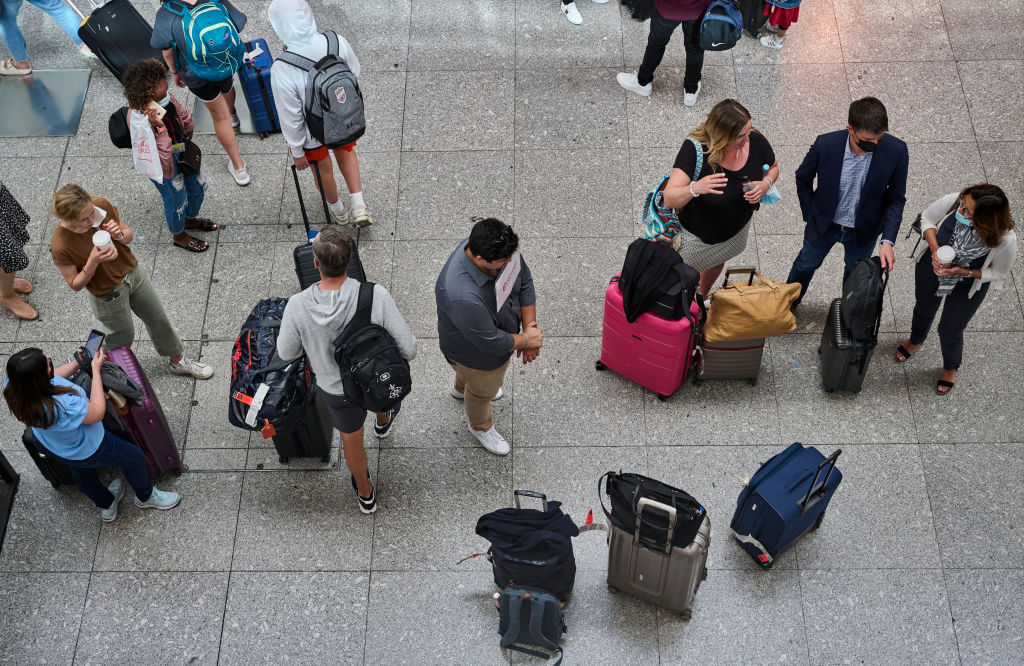
The U.S. Centers for Disease Control and Prevention uses outdated tools to track and analyze how Covid-19 spreads on planes, hindering the agency’s ability to stop outbreaks, a government watchdog agency said.
Air travel is a constant concern in public health, since a sick person can board a plane in one country and hours later land in another, quickly spreading disease over large distances. Because of that, the CDC’s contact-tracing capabilities have long been seen as critical to the agency’s disease surveillance and response.
But in a report released Monday, the Government Accountability Office said the agency’s technological tools were old, slow and prone to problems. The “CDC is not positioned to efficiently analyze and disseminate data to inform public health policies and respond to disease threats,” the GAO said.
Read More: I Was the First Person in America to Get a COVID-19 Vaccine. It Taught Me a Powerful Lesson
The report comes as the CDC prepares to share findings from an internal review of response to the COVID-19 pandemic that has resulted in more than 1 million American deaths. Officials inside the CDC and from other parts of the government who work with the agency have raised longstanding frustrations with how the health agency collects and manages data, Bloomberg reported in May.
When tracking air travelers, many data entry tasks are done manually, and it can take the CDC as long as two weeks to collect additional information to address errors or gaps in data provided by airlines, according to the GAO. By that point, the information is practically obsolete, the GAO said, and the “delay can contribute to broader community spread of a disease, as potentially exposed passengers may become difficult to locate and notify, or they may become symptomatic or infectious during this time.”
An “outdated data management system” is to blame for the agency’s inability to quickly and accurately identify passengers exposed to an infected person on a flight, according to the GAO.
Read More: Air Travel Is Hell This Summer. And It Won’t Be Fixed Anytime Soon
The GAO recommended that the CDC redesign its system or create a one that would allow broader, more effective surveillance.
To conduct the study, congressional auditors reviewed federal documents, regulations, orders, public health comments and data. They also interviewed officials across the CDC, Customs and Border Protection and the Federal Aviation Administration.
The CDC said in a statement that the agency appreciated the GAO’s report and that it, too, has cited challenges around acquiring data necessary to inform public health policy.
CDC Director Rochelle Walensky is working with the Biden administration and Congress to improve the agency’s data capabilities, the agency said.
More Must-Reads from TIME
- Where Trump 2.0 Will Differ From 1.0
- How Elon Musk Became a Kingmaker
- The Power—And Limits—of Peer Support
- The 100 Must-Read Books of 2024
- Column: If Optimism Feels Ridiculous Now, Try Hope
- The Future of Climate Action Is Trade Policy
- FX’s Say Nothing Is the Must-Watch Political Thriller of 2024
- Merle Bombardieri Is Helping People Make the Baby Decision
Contact us at letters@time.com